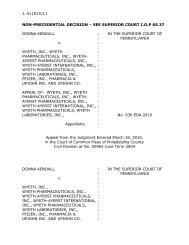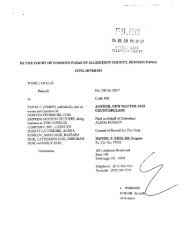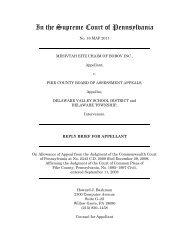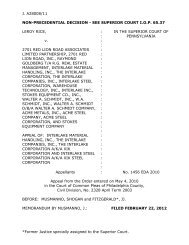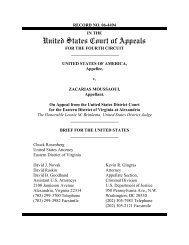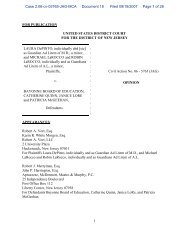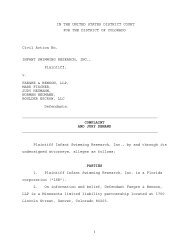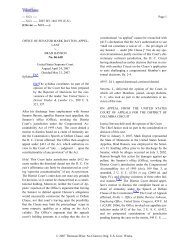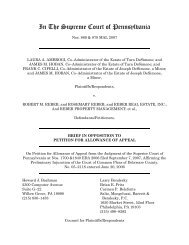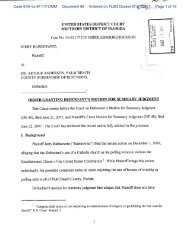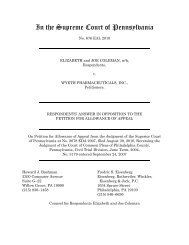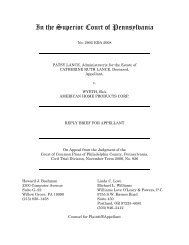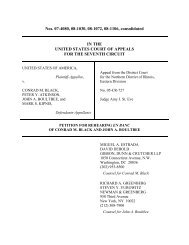Stone v. Bear, Stearns & Co., Inc. - How Appealing
Stone v. Bear, Stearns & Co., Inc. - How Appealing
Stone v. Bear, Stearns & Co., Inc. - How Appealing
Create successful ePaper yourself
Turn your PDF publications into a flip-book with our unique Google optimized e-Paper software.
School who regularly lectures to brokerage firms, insurance companies, banks, and investors.<br />
Marston had previously disclosed to FINRA her husband’s ties to the securities industry, but FINRA<br />
never incorporated the information into Marston’s biography.<br />
The arbitration did not go well for <strong>Stone</strong>. The panel unanimously sanctioned him $15,000 for<br />
discovery violations mere weeks before the first hearing, and in July of 2011, the three arbitrators<br />
unanimously rejected all of <strong>Stone</strong>’s claims. A few days later, <strong>Stone</strong> started digging. He spent twenty<br />
(20) hours, more or less, painstakingly researching each of the three arbitrators, looking for evidence<br />
that they were biased against him. By his own admission, <strong>Stone</strong> had done no background<br />
investigation on the arbitrators at any time before he lost his case, although he certainly could have<br />
done so.<br />
Case 2:11-cv-05118-LDD Document 22 Filed 05/29/12 Page 2 of 35<br />
<strong>Stone</strong>’s sleuthing uncovered the relationship between arbitrator Marston and Dr. Marston, as<br />
well as Dr. Marston’s ties to the financial sector. <strong>Stone</strong> brought this information to his lawyers and<br />
eventually filed this lawsuit seeking to overturn the adverse arbitration award. In <strong>Stone</strong>’s opinion,<br />
given Dr. Marston’s close relationship with the securities industry, arbitrator Marston should never<br />
have heard his case. Further, according to <strong>Stone</strong>, Marston’s alleged non-disclosure of her husband’s<br />
professional dealings requires vacatur of the award on three separate grounds. First, <strong>Stone</strong> contends<br />
that Marston demonstrated “evident partiality” against him by virtue of her purported failure to<br />
disclose. 9 U.S.C. § 10(a)(2). Second, <strong>Stone</strong> argues that the aforementioned failure to disclose<br />
constitutes “misbehavior” by Marston under 9 U.S.C. § 10(a)(3). And finally, <strong>Stone</strong> asserts that<br />
Marston “exceeded [her] powers” as an arbitrator as provided in 9 U.S.C. § 10(a)(4) because FINRA<br />
improperly designated her as a “public arbitrator.”<br />
As explained herein, we reject <strong>Stone</strong>’s invitation to overturn the panel’s unanimous decision.<br />
Arbitration awards are entitled to extreme deference, Dluhos v. Strasberg, 321 F.3d 365, 370 (3d Cir.<br />
2



